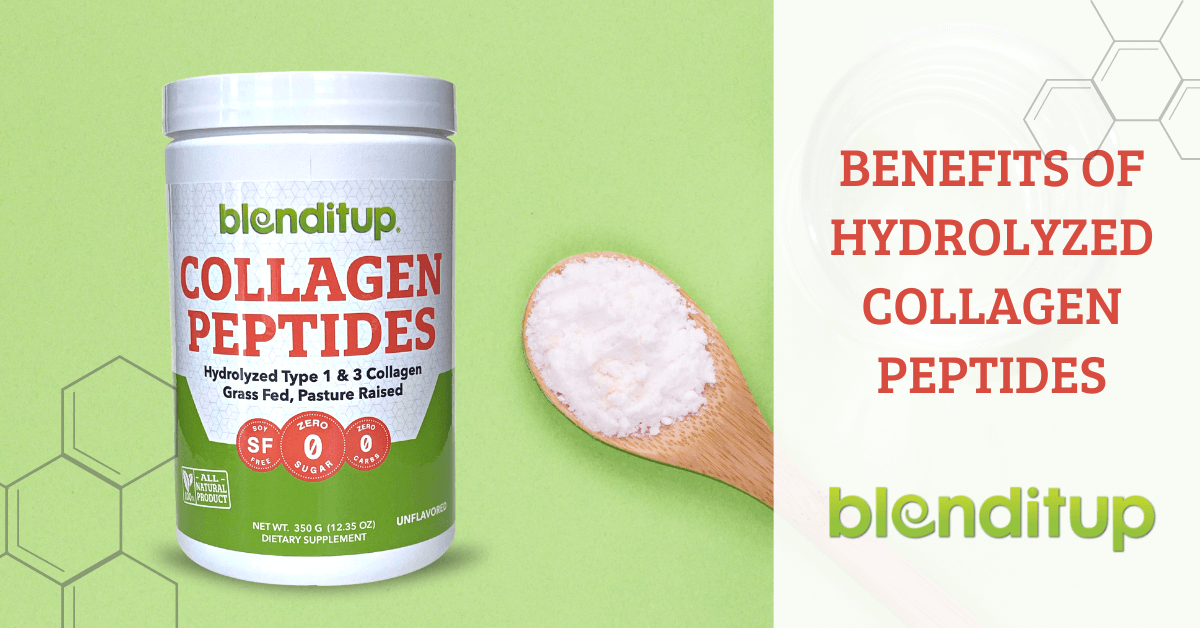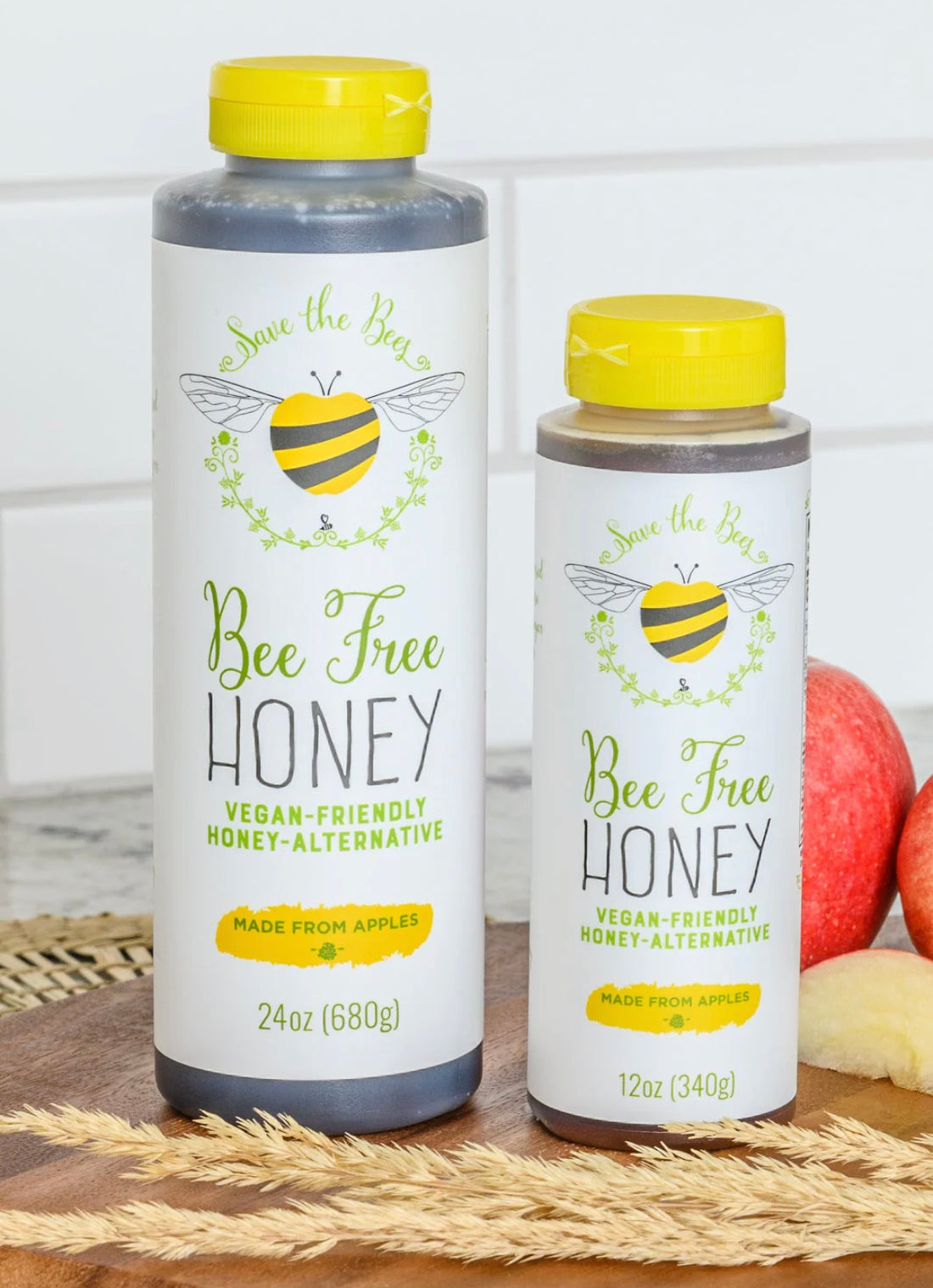Collagen supplements have grown in popularity in recent years. It seems like it is in everything nowadays from protein powders, snack foods, coffee, drinks, supplements, skincare, and even water. But does that mean it's beneficial to take it on a daily basis? And if it is beneficial, the market is flooded with different kinds of collagen products so which one should you take?
What Is Collagen?
First, let's inspect what collagen actually is. Collagen is the most abundant protein in the body. It makes up 30-40% of all the proteins in the body. Collagen is a protein that is found in cartilage, bone, muscle, tendons, and skin. Collagen is a macromolecule deposited in the form of fibers. This fibrous protein is found in organs, muscles, skin, hair, nails, teeth, bones, blood vessels, tendons, joints, cartilage, and your digestive system. To say that collagen is an important component of the body would be an understatement.
We gradually lose collagen over time. This occurs naturally beginning in our late twenties and continues at a rate of about 1% per year after that. By the age of 40, collagen begins to deplete faster than your body can replace it, and by the age of 60, more than a quarter of your body's collagen has been depleted. Aside from aging, many other factors influence collagen levels. Collagen depletion can also be accelerated by lifestyle factors such as sun exposure, poor diet, stress, and other environmental aggressors. Individuals going through menopause, in particular, experience a 30% decrease in natural collagen production during this time.
There are 28 different types of collagen, but the four most common are:
- Type I: is the most common and can be found in all connective tissue.
- Type ll: found in joints and intervertebral discs
- Type llI: the primary component of reticular fibers found in the skin and blood vessels.
- Type lV: is a protein found in your kidneys, inner ear, and eye lens
All proteins, including collagen, are made up of smaller molecules called protein peptides. And protein peptides are made up of even smaller molecules known as small chain amino acids.

What Are Hydrolyzed Collagen Protein Peptides?
Hydrolyzed collagen is a type of collagen supplement where the collagen protein has been hydrolyzed or broken down into smaller chains of amino acids called peptides. Collagen peptides are very small protein fragments derived from animal collagen. To hydrolyze a bond is to break it apart with water.
When collagen has been hydrolyzed, it has been broken down into smaller molecules to make it easier to absorb.
Collagen peptides are produced by dissolving whole collagen proteins into smaller peptide molecules. Collagen peptides appear to accumulate in the skin and cartilage when taken orally. Some skin and joint conditions may benefit from this.

- Improves Skin Health - several studies have shown that collagen peptides or supplements containing collagen III may help slow the aging of your skin by reducing wrinkles and dryness.
- Helps Relieve Joint Pain - Collagen contains the amino acids glycine and proline, which help to support joint mobility and a healthy inflammatory response. In a recent study, adults who took collagen daily for 70 days had a significant reduction in joint pain and were better able to engage in physical activity than those who did not take it.
- Helps Prevent Bone Loss - Your bones are made mostly of collagen, which gives them structure and helps keep them strong. Consuming collagen supplements may help reduce the risk of bone disorders such as osteoporosis.
- Promotes Heart Health - Collagen provides structure to your arteries, the blood vessels that carry blood from your heart to the rest of your body. Proline, which is found in collagen, can help to reduce fat deposits in your arteries and repair the tissues within them. Without enough collagen, arteries may become weak and fragile.
- Better Hair and Nails Health - taking collagen increase the strength of your nails by preventing brittleness. Additionally, it may stimulate your hair and nails to grow longer.
- Promotes Gut Health - Your intestinal wall is made up of microscopic folds or “villi,” which are actually built of collagen. Using collagen supplementation to increase the production of collagen-produced amino acids can help promote tissue growth and cellular health in your intestinal lining.
Types I & III Collagen
Type I collagen makes up the majority of collagen in the body, up to 90%. Gram for gram it's even stronger than steel. Type I collagen is found in your skin, bones, ligaments, organs, eyes, and inside your digestive tract. Collagen type I is essential for wound healing and is most commonly used to support healthy skin, hair, and nails. Type I collagen is fibrillar in nature and is most likely the most thoroughly researched collagen.
Type III collagen is the second most abundant collagen of soft tissues and dominates the early phases of wound healing and tissue formation. It is found alongside Type 1 collagen and aids in the formation and maintenance of arterial walls. It is a homotrimer of three identical polypeptide chains.

Collagen Supplements
You can increase your natural collagen production with collagen supplements. Hydrolyzed collagen peptides have been shown to aid in the natural production of collagen and other skin-related substances such as elastin and fibrillin by supporting the fibroblasts. Fibroblasts are cells found in connective tissue that produce collagen and other fibers that compose the basic framework for tissues and organs.
- Diverse Amino Acid Profile: Our bodies require approximately 20 different amino acids in order to function properly. Therefore, when looking for a collagen supplement, we recommend finding one with a diverse amino acid profile.
- Hydrolyzed Bovine Collagen: Though collagen can come from many different sources, bovine has been found to be the most potent and effective. Furthermore, when collagen is hydrolyzed it essentially means the amino acids within it have been broken down, so they're easier for your body to absorb.
- Types I & III: We recommend finding a supplement that contains collagen types I & III -- as these support the majority of collagen production in the body and are also the most potent.
Conclusion
Your body needs more collagen as you age. BlenditUp provides the highest quality Type 1 and Type 3 collagen peptides you can buy. You should have noticeable results within weeks of adding our collagen supplement to your diet. Order your BlenditUp Collagen Peptides online today and enjoy the transformation you'll see in the mirror!
Grass-fed, pasture-raised bovine collagen peptides provide an easy way to add highly absorbable collagen to your daily diet. It's unflavored and perfect for shakes, smoothies, coffees, drinks, or can be used in baking.





